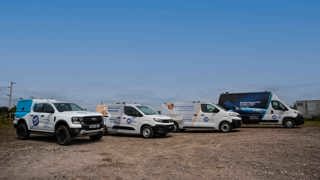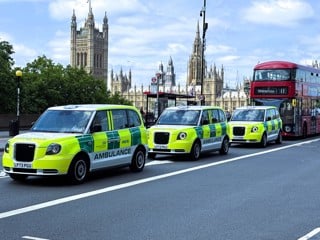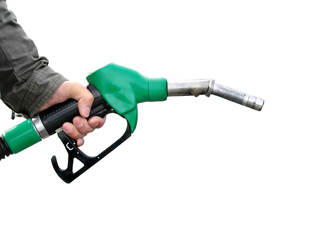The shelves and walls surrounding Val South’s desk are adorned with congratulatory cards, messages and flowers following her Fleet News Awards win.
Xerox’s fleet manager of the year has built up a sizeable network of contacts during her 43 years at the company, the past 32 in fleet.
It’s a tribute to South’s geniality, hard graft and professionalism that so many of them were eager to toast her success.
During her time in fleet, much has changed. Back when she started, everything was done in-house via a department of 15 people.
Cars were bought outright; the names of drivers were stored on cardboard. Now the department numbers two.
Administration is outsourced, the workshops have been closed and cars are leased or offered on an employee car ownership scheme.
Duty of care is now a priority. “We never used to even ask for driving licences,” South says with a sense of incredulity.
Now, risk is one of the major issues for the business, not least because of the tougher penalties facing companies who fail to meet their responsibilities.
Mixed in with safety is the focus on cost. The Xerox fleet has historically been heavily influenced by human resources – South reports into HR. Now the pendulum has swung more towards finance.
“We’re not so touchy-feely” says South.
“Fleet has more focus at a senior level because it is one of our highest cost areas. It’s always on the agenda in board discussions.”
Fleet News: Xerox offers a blended car scheme with a combination of ECO and contract hire. Why does that work best for you?
Val South: We introduced ECO in 2005 on the back of an employee survey which showed people wanted more choice and some had issues over tax. ECO was a solution – staff don’t pay benefit-in-kind but they make a contribution to Xerox.
Over three years this has saved the company £1 million. However, it doesn’t work for everyone because you have an engrossment on the benefit to pay the taxman because insurance is paid for the employee by Xerox.
HMRC doesn’t get BIK, but we have to pay an amount to them.
For some employees, we have to pay a lot of engrossment, especially those who are not doing a lot of business mileage.
All job-need drivers go into the ECO scheme; for others we have a calculator which works out the best way to finance each based on the car, tax and contribution.
If it’s contract hire, the employee is slightly worse off so we make a cost neutrality payment.
Although 60% of the fleet is job-need, we have 900 on ECO and a couple of hundred on contract hire.
FN: In addition to your company car scheme, Xerox started offering cash allowance in 1999. Are you intending to bring people back into the car scheme?
VS: We have changed the way we calculate the cash allowance. It never used to be linked to the price of actually buying a car – now it is.
We have served notice to our 800 cash takers that the scheme will change in September and then reviewed annually to ensure we are in tune with the marketplace.
This has encouraged people to look back at the car scheme because there are no addition costs and it is hassle-free.
With cash there are unknowns with unexpected repair bills.
FN: What key initiatives have you introduced?
VS: Risk assessment is the big one. We aim to have everyone taking the car or cash complete an online assessment with Fleetcraft. We started the process in 2009.
Phase one was the car drivers, then the cash takers. It was a real challenge to get people to complete it.
We relaunched the programme in 2010 and now just three people haven’t done it.
FN: What changed to encourage people to complete the assessment?
VS: We got management on board, we engaged HR and we produced a monthly escalation list – we wore people down basically.
We also communicated it better, especially with cash takers – they have to have their MOT and insurance details to hand which we didn’t tell them at the start and that frustrated a few people.
It’s been a success: we found that four licences were revoked and one driver didn’t have a licence at all because he’s been banned.
We have identified the high-risk drivers, which is only 10 out of 2,000.
FN: What are the key elements of the programme?
VS: We ask for details about the car, driving licence, mileage and work hours and we have soft questions about whether staff are happy with their mileage and hours to assess their stress levels.
We get a rating for each together with recommendations. Some do a second module to identify the actual issues. The next step is to look at our accident rate.
We have a lot and 85% are our own fault – the annual cost is around £1 million, half of which is ‘hit by unknown’.
FN: How are you tackling the spiralling cost of fuel?
VS: Our annual fuel bill is £2 million. We have a monthly review of motorway purchases – drivers have a £20 limit .
We also have quarterly mpg reporting to identify drivers who are 20% or more below the manufacturer’s official figure.
People can get twitchy about this, but it could be down to tyre pressure or the car might need a service. Now some people ask to know their mpg.
Just by raising awareness we have halved the number of people that were falling outside of the 20% threshold.
Even after 32 years in the Xerox fleet department, Val South is still trying out new things.
She continues to be invigorated by fleet operations and shows no signs of complacency or slowing down.
This year she is embarking on another trial of telematics.
Previous trials have not produced the results – a combination of poor data and a lack of privacy switch – but Xerox’s insurance partner Zurich has agreed to contribute towards funding the latest initiative.
Communication with drivers is key. “We have had ‘big brother’ comments, but our sell is that it’s about looking after them by assessing their workloads,” South says.
As for the role of the fleet manager, with the Xerox department falling from 15 to two, does she believe the future is bleak? Not at all.
“The role of the fleet manager is here to stay,” she says, with conviction. “We add value; our initiatives save companies money.”
Sponsor’s comments - Michelin
Anyone who saves their company hundreds of thousands of pounds does a tremendous job and the fact that Val South has been doing so for an astonishing 32 years makes it even more remarkable.
Her achievement is even more admirable in that she has managed to maintain her drive and enthusiasm to run an efficient fleet over such a long period of time.





















Login to comment
Comments
No comments have been made yet.